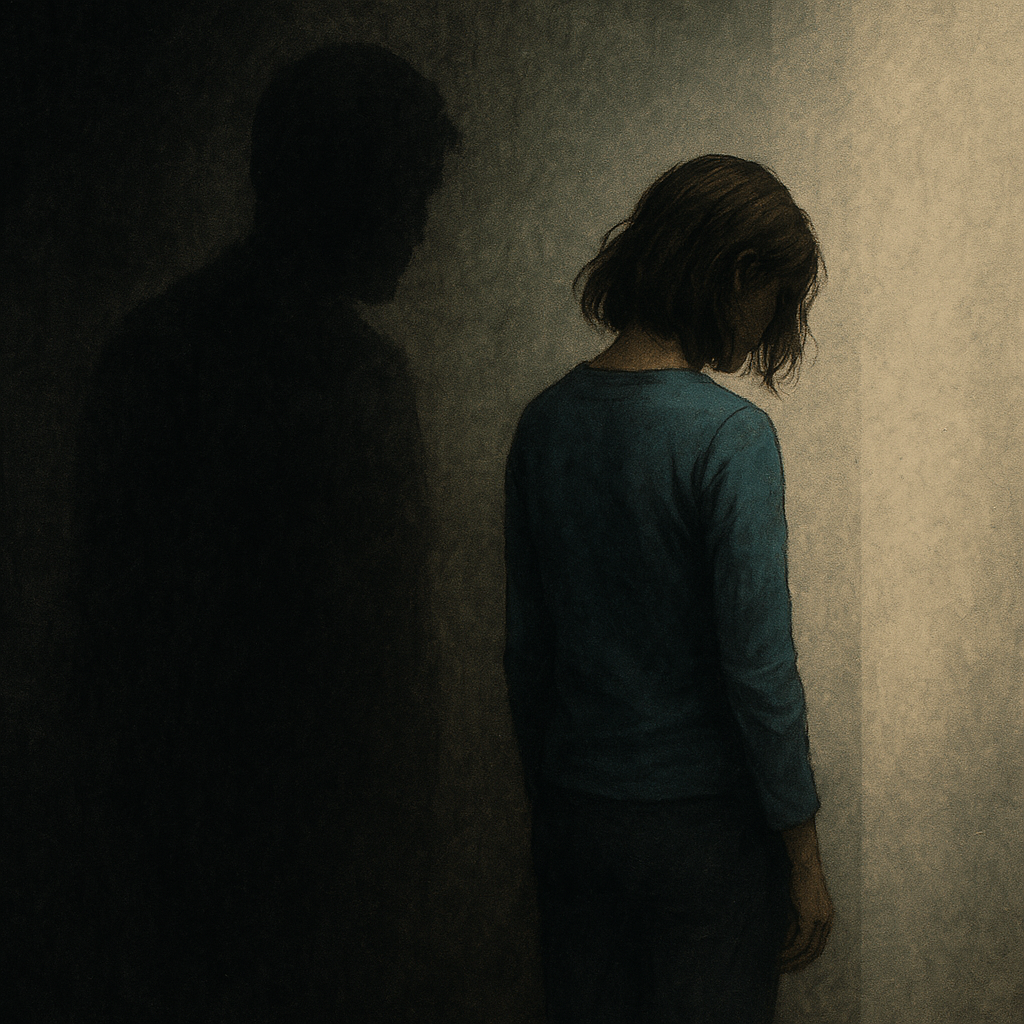If you’re reading this because you’re living in something that feels off — something that’s hurting you but you can’t quite name — you’re not alone. I’ve lived it too. I’m still crawling my way through the aftermath of a trauma bond after abuse, trying to figure out how it even happened again.
Trauma Doesn’t Look Like a Monster
You never think it’ll happen again. 
You got out. You rebuilt. You’re stronger now. Wiser. You can spot the red flags a mile off, right?
Wrong.
Abuse doesn’t walk through the door in a balaclava. It doesn’t introduce itself with a clenched fist. It shows up with romance, compliments and hand-written notes. It offers to cook dinner and rub your back and makes you feel — finally — chosen. Safe. Special.
Especially when you’ve survived an abusive relationship before. You want to believe this is your second chance at love. A good person. A new chapter.
That’s how it starts. This one started like that.
He was charming. A happy guy. The kind of magnetic that lights up the room. He was attentive, emotionally expressive, generous to me. It was intoxicating. I remember thinking, Wow, I’ve finally found someone who actually loves me.
The Cracks Start Slowly
And then, slowly — and I mean so slowly — things started to crack.
But not in the way you expect. Not like the movies. More like… confusion. Self-doubt. Conversations where I’d walk away wondering if I’d gone mad. The tiniest criticisms wrapped in jokes. The “anger” that hurt a bit more than it should, and anyway anger is a good quality (so he said). The first time I got pushed, it was because I was “winding him up.”
Then came the apologies. So many apologies.
“I’m so sorry, I’m ashamed of myself.”
“It won’t happen again.”
“That wouldn’t hurt you — it was just a cushion.”
“That wasn’t abuse, babe.”
The terrifying thing is: part of me believed it.
What a Trauma Bond Really Feels Like
Because when someone is alternating cruelty with affection, pain with praise, your nervous system doesn’t know which way is up. You become addicted to the highs. That’s what a trauma bond is — it’s not weakness. It’s biology. It’s being trapped in a cycle of fear and relief, shame and hope. And it’s brutally hard to break.
The trauma bond after abuse is like an invisible tether — it keeps pulling you back, even when you know you should run.
Especially when they say they love you.
Especially when there are kids to think about.
Especially when you’ve already been through hell and you’re desperate not to “fail” at another relationship.
He started out with some money in the bank. Then he didn’t have money. He didn’t earn an income. He then needed me. I stayed longer than I care to admit.
When the Apologies Stop
Until one day, the apology didn’t come fast enough.
And the shove turned into a punch.
And the scream turned into silence.
And that was it.
There Is No Going Back
I picked myself up off the floor — literally. Keys in hand, I left. There was no looking back.
Not in the way it had before. Not in a breaking way. In a breaking free way. I walked out the door. And I knew: this time, there’s no going back.
Thank god for the Domestic Abuse Act.
Thank god for the police officers who listened, who believed, who acted.
Thank god for the bail conditions that now keep him away.
Thank god for the tiny flicker of strength I somehow found when I thought I had none left.
It’s still raw. The tears still come. The locks still get checked. And sometimes, I still wonder: was it really that bad? — because that’s how strong the gaslighting is. That’s how deep the trauma bond goes. But the silence that used to feel unbearable now feels like space. Like breathing room.
The worst part isn’t even the violence. It’s the way you lose yourself.
You stop recognising your own thoughts. You doubt your version of events. You replay conversations like crime scene footage, trying to piece together how things got so dark.
That’s what abuse does. It rewrites your story until you don’t trust your own pen.
But I’m slowly reclaiming it.
One sentence at a time.
I wanted to write this because there’s this myth that women who fall into abusive relationships are naïve. Uneducated. Weak. Dependent.
I’m not any of those things.
I’m smart. I’m independent. I run a business. I’ve rebuilt from nothing before. And I still got caught in another cycle of abuse — because they don’t show up looking like monsters. They show up like saviours.
Until they don’t.
And if you’re in one now — or you’ve just left one — and you feel broken, ashamed, stupid, exhausted, any of those things… please know that you are not the problem. You are the target.
And you’re not alone.
Writing this is part of breaking the trauma bond after abuse — reclaiming my own story. I don’t have a fairytale ending to offer yet. I’m still in the thick of it. Still making sense of what the hell just happened to my life. But I can say this:
Leaving isn’t the end of the story.
But it is the beginning of the truth.
And that’s a start.
You Are Not Alone
If you recognise yourself in this, and you’re in the UK, please know there is help available.
Visit National Domestic Abuse Helpline – www.nationaldahelpline.org.uk or call 0808 2000 247 for confidential support 24/7. You are never too late. You are never too much. You are never alone.